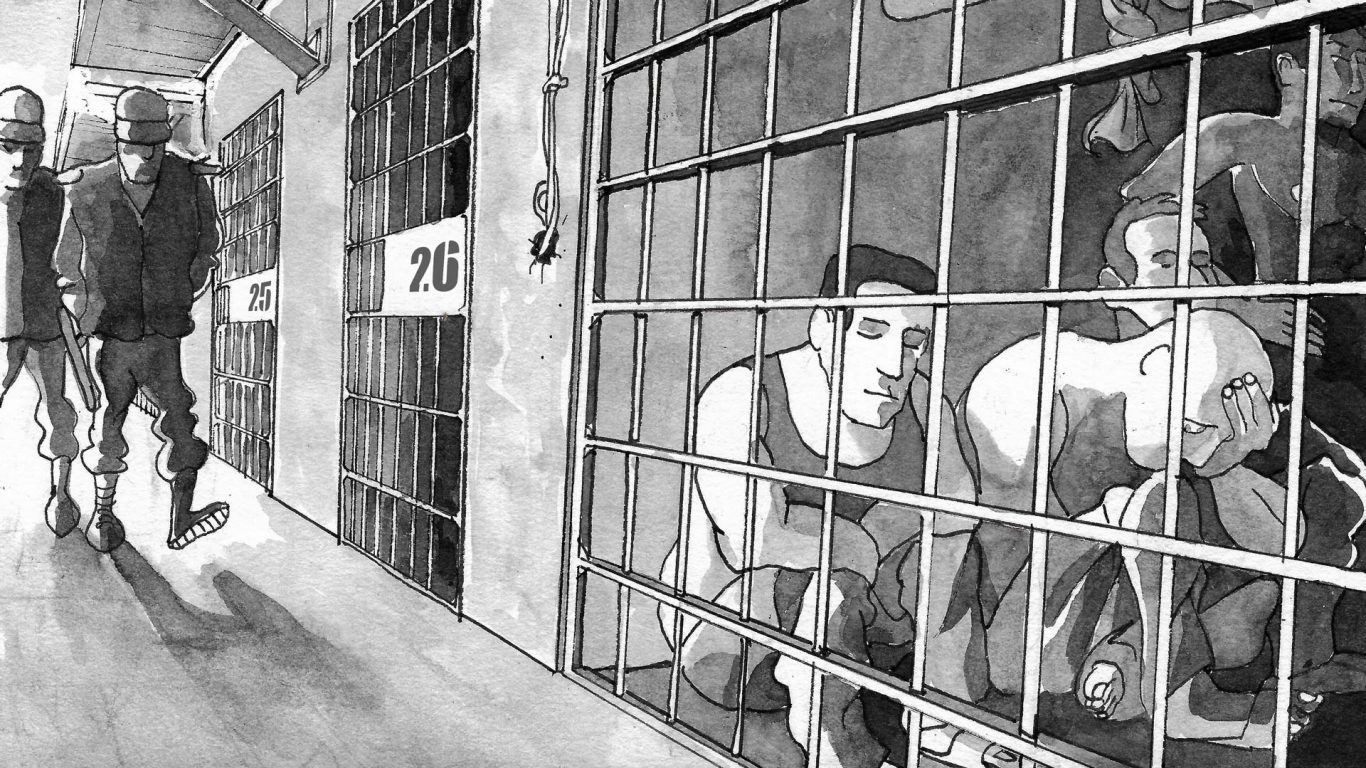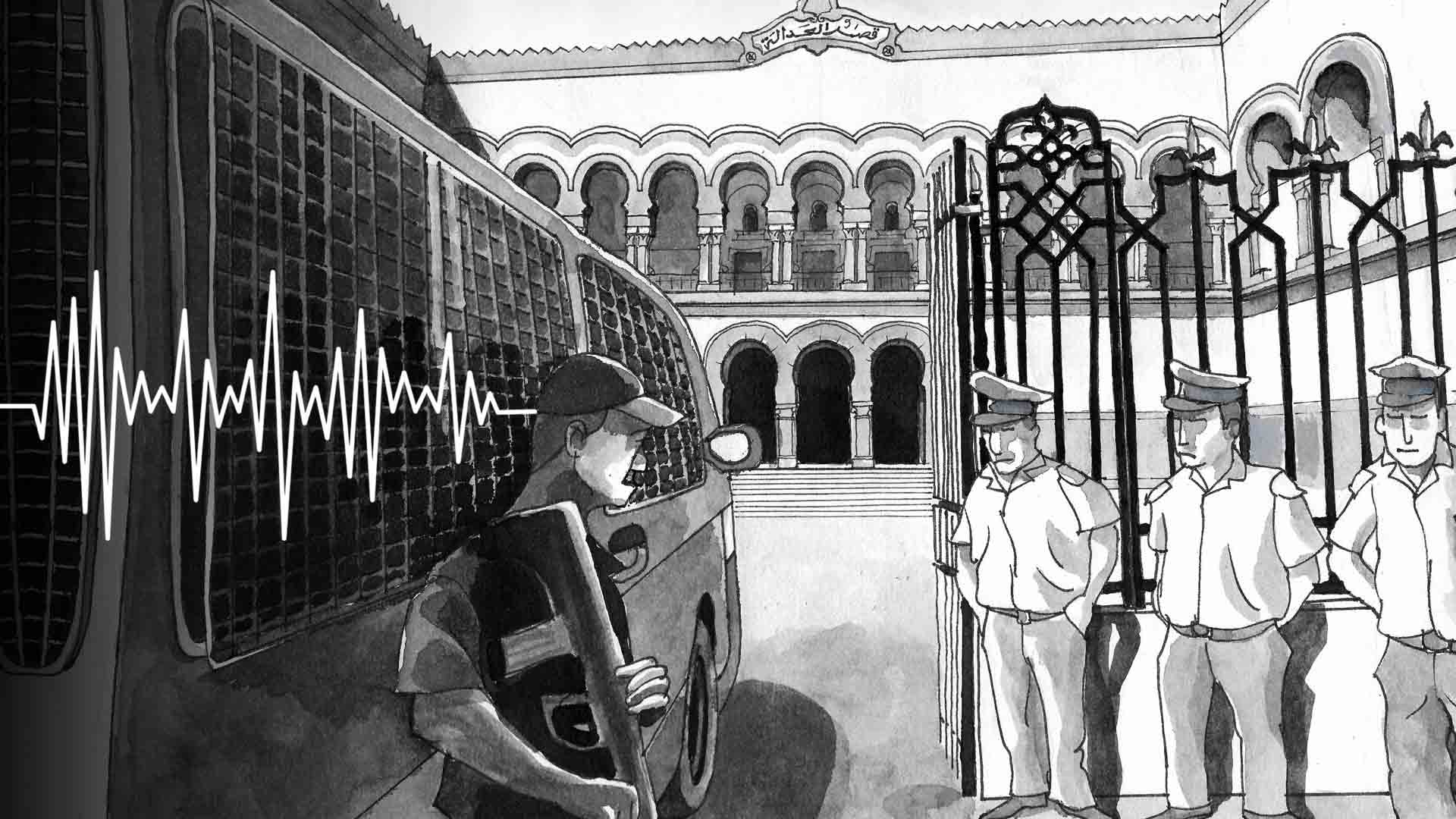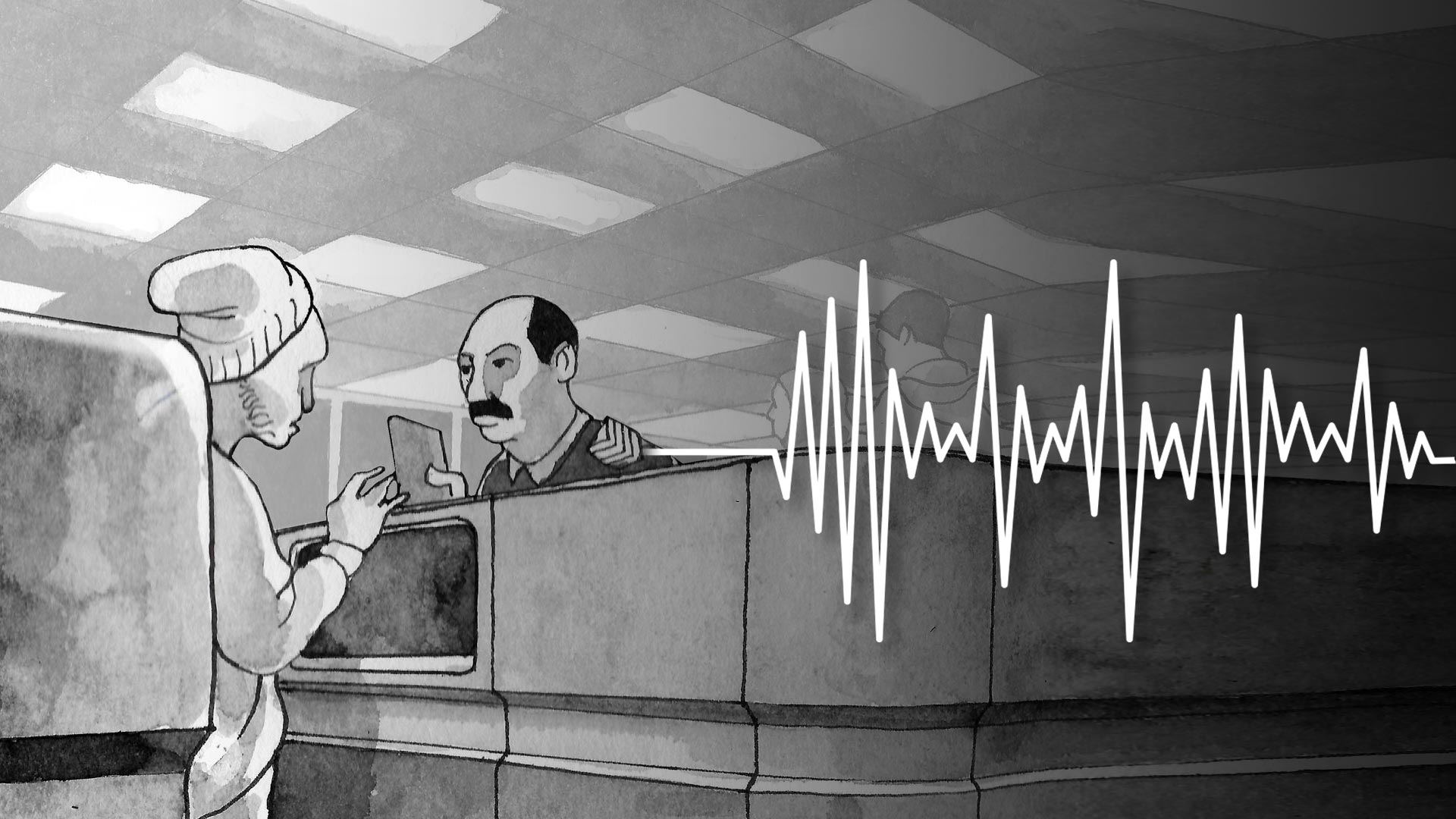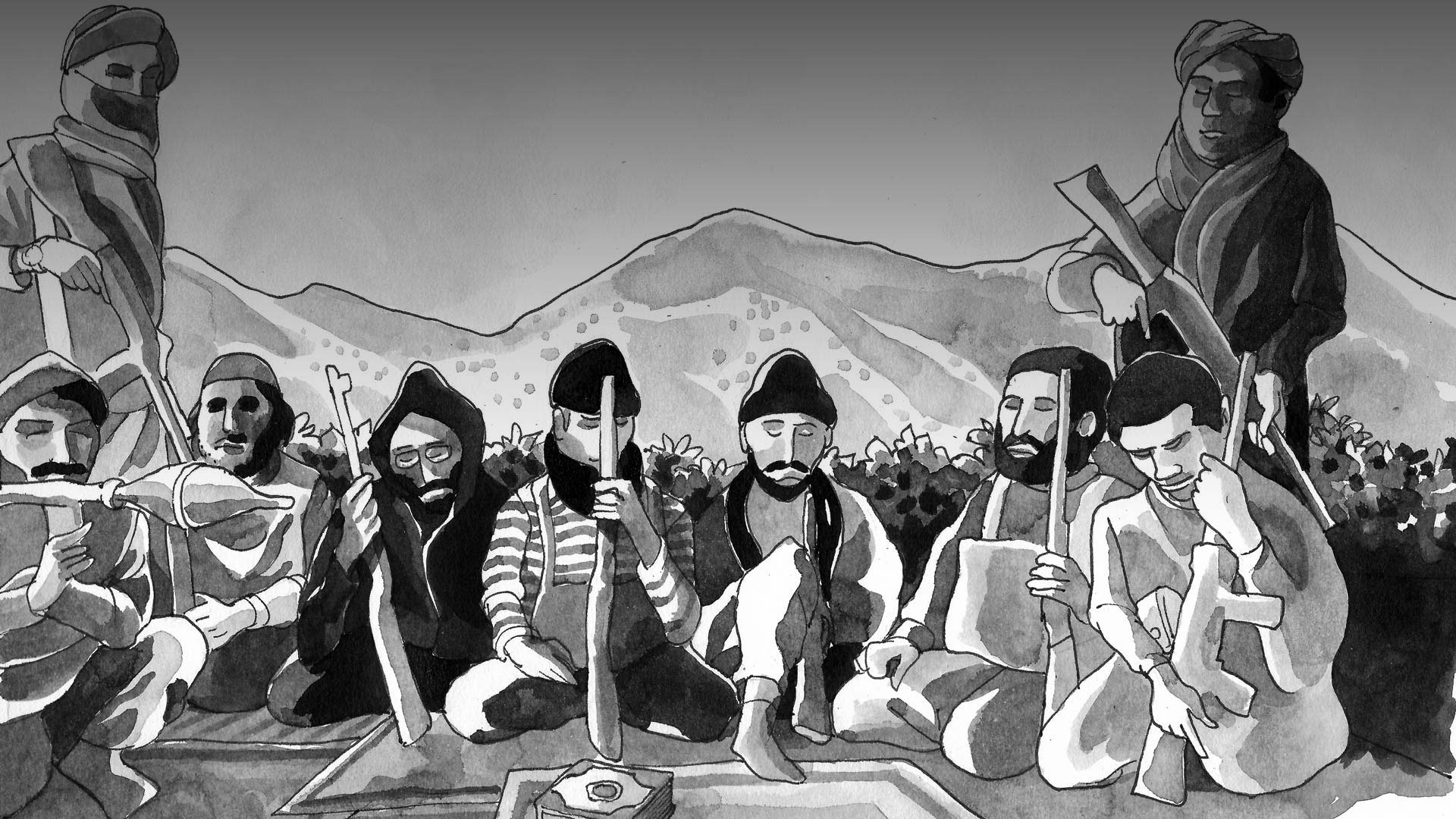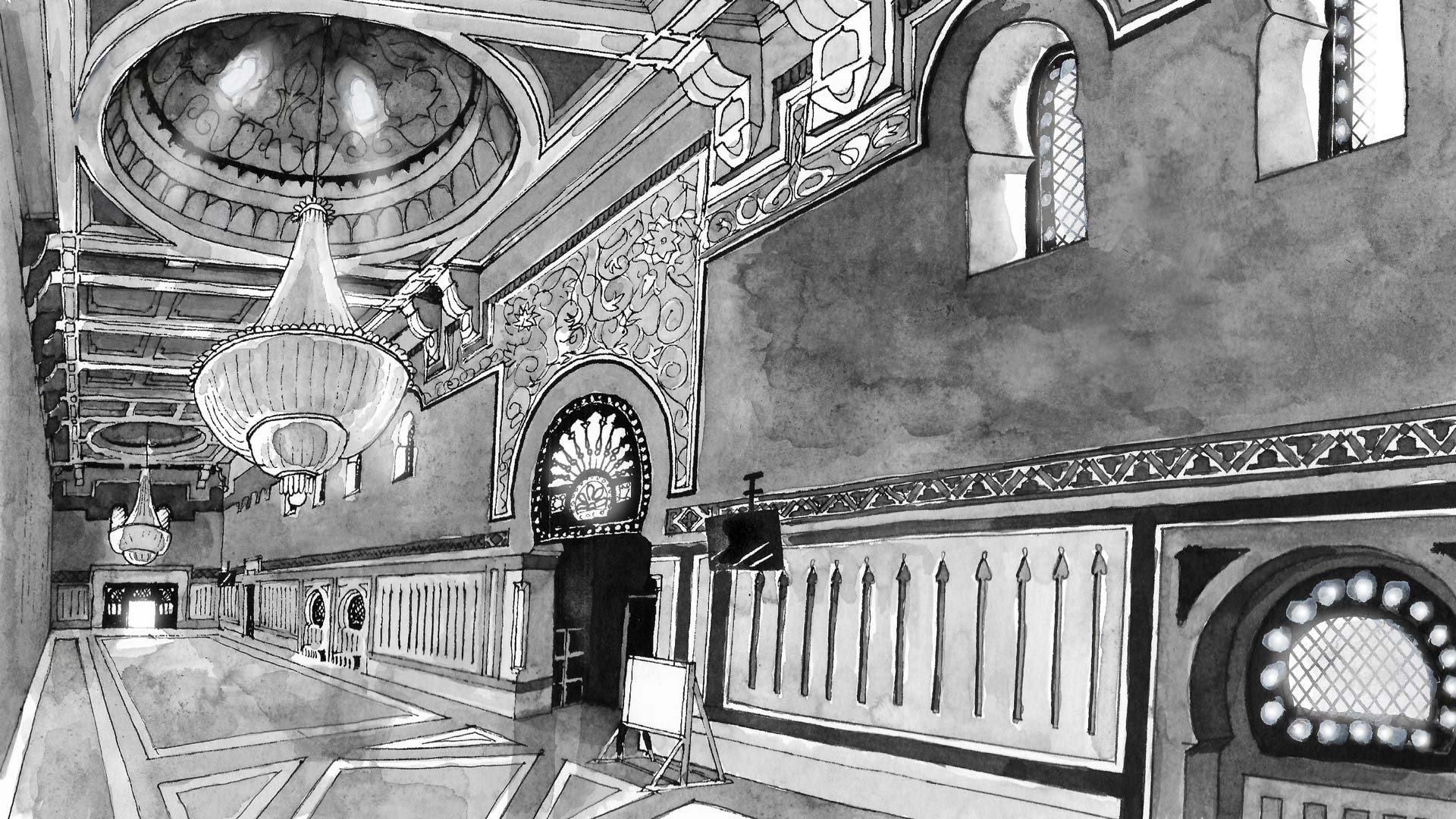| EPISODE 4
Torture and detention: A Radicalisation Machine
Created by
Christophe Cotteret
Illustration
_Z_
Audio recording
Bochra Triki
Sound Design and Mixing
Oussema Gaidi
Interviews and Voice-Over
Music
Omar Aloulou
Doubling
Maher Dhahbi
Voice-Over
Monia Ben Hamadi
Since the early 2000s, overcrowded detention centres have in spite of themselves become ideal places for proselytising.
Effectively targeting psychologically vulnerable detainees, these recruits become particularly receptive to doctrines conducive to violent extremism - and what they all have in common is a strong resentment towards a Tunisian state that inflicts violent and arbitrary treatment, leading to the worst.
Those arrested in cases related to terrorism are particularly exposed to this ‘preferential treatment’, a.k.a. brutal arrests, torture, and systematic incarceration in degrading conditions, regardless of the severity of the offence.
"This culture could not be completely erased after the revolution. It still persists in the Ministry of the Interior, within the police officers who handle interrogations."
In the fourth chapter, Christophe Cotteret gives the floor to psychologist Rim Ben Ismaïl who works in detention centres, cautioning against the psychological consequences to those who have been detained in cases related to terrorism.
Interspersed with testimonies from former detainees and their families, as well as lawyers specialised in cases of jihadism, this episode encourages us to reflect on what specific form of detention that could be envisioned for those detained in terrorism-related cases.
The Dilemma of The Antiterrorist Justice System
Latest episodes
| EPISODE 3
The returnees who cannot return
| EPISODE 2
The Origins of the Disaster
| EPISODE 1
The Inner Workings of the Tunis Courthouse
ABOUT
Inkyfada Podcast is the first platform entirely dedicated to original Tunisian podcasts, and was conceived by Inkyfada media in collaboration with the in-house research and development laboratory, InkyLab. Inkyfada joined the global podcast boom in 2017, when the team produced the first Tunisian audio documentary, diving deep into the belly of the El Kamour struggle taking place in the desert. Since then, Inkyfada Podcast has produced a wide variety of documentaries, investigations, and podcast series, as well as articles accompanied by music; covering a multitude of contemporary issues in order to offer an immersive and alternative podcast experience. Whilst exclusively offering audio content, the Inkyfada Podcast team upholds the same core values and principles of inkyfada.com, and is committed to producing high quality content though a dynamic and meticulous production process. In addition to the permanent team, Inkyfada podcast works closely with various journalists, artists, illustrators, musicians and other content creators in order to diversify the platform and support artistic creativity. These podcasts differ from traditional radiophonic content in that the applied production and editing process is more akin to cinematographic techniques, in addition to being web-based, downloadable and accessible on demand. Additionally, Inkyfada Podcast uniquely offers subtitles in French, Arabic and English for all audio content, the majority of which is recorded in Tunisian or in the preferred language of the speaker in question.




